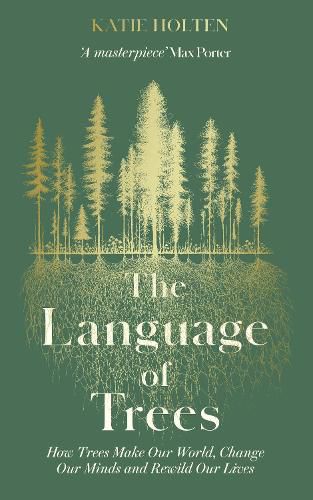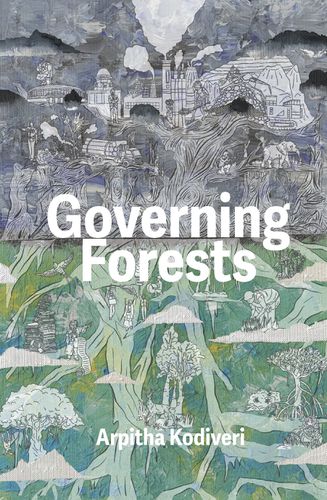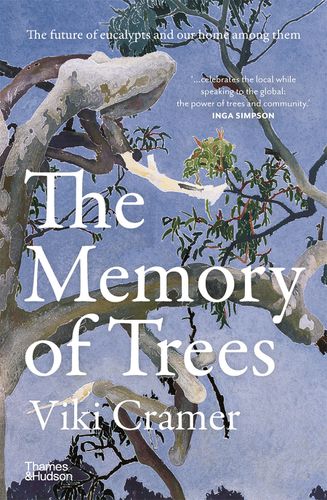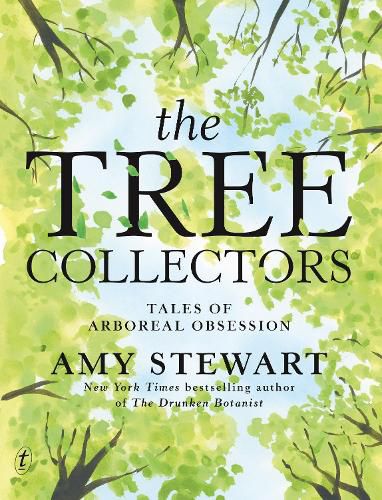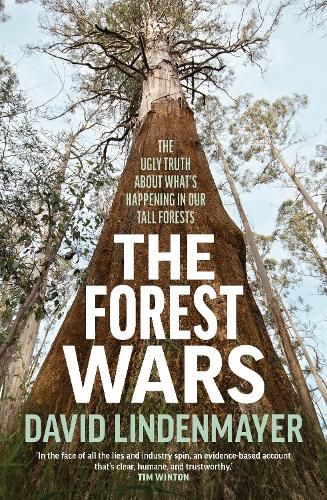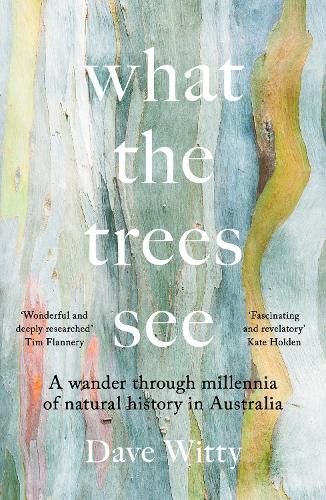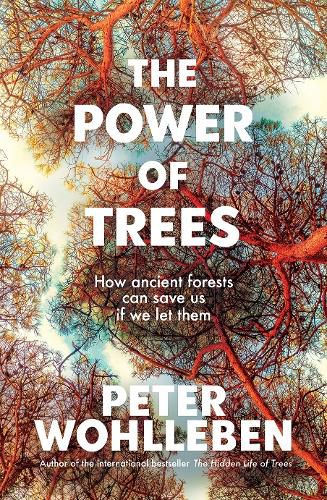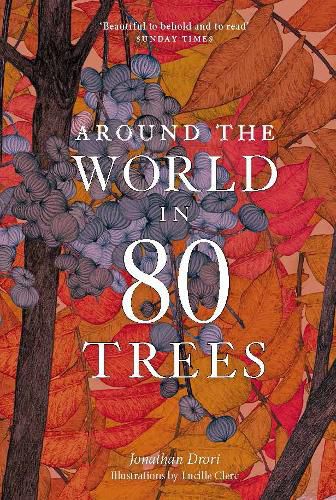With Spring in the air and blossoms starting to emerge across Melbourne's streets, I've developed a new hyperfixation: trees! From their towering beauty to the diverse foliage, flowers and fruits they grow, to how pivotal trees and wood have been to Western civilisation, once you take a moment to think about the trees you're walking past every day, you're bound to have the same realisation I have – that they're incredibly interesting, beautiful, and politically charged.
If any of this has piqued your interest, follow me down the rabbit hole with these incredible nonfiction books, that go into depth about the communities who love and respect the planet's forests and trees, and the threats facing the future of those same instutions. You can expect beautiful illustrations, incredible knowledge and care practices from traditional land owners, and a healthy dose of galvanising anger about the ramifications of deforestation and the climate crisis.

The Language of Trees by Katie Holten
The Language of Trees is a gorgeously illustrated homage to the hidden wonders of the forest and our indelible connection to trees, filled with prose, poetry and art from over fifty collaborators, including Ursula K. Le Guin, Robert Macfarlane, Zadie Smith, Radiohead, Elizabeth Kolbert, Amitav Ghosh, Richard Powers, Suzanne Simard, Gaia Vince, Tacita Dean, Plato and Robin Wall Kimmerer.
In this deeply thoughtful collection, artist Katie Holten gifts readers her visual Tree Alphabet and uses it to masterfully translate and illustrate these pieces from some of the world's most exciting writers and artists, activists and ecologists.
Governing Forests by Arpitha Kodiveri
The nations of the Global North are responding to the climate change emergency with emissions trading schemes and alternative sources of energy. Meanwhile, nations of the Global South, still emerging from historical exploitation, face decisions about natural resource use that are, for traditional owners and inhabitants of resource-rich lands, often a matter of life or death.
Environmental lawyer and legal scholar Arpitha Kodiveri has worked alongside many of India's forest-dwelling communities and describes how they bear the cost of both rapacious mining development and increasing pressure for forest land to be set aside for environmental conservation. Despite these challenges, Kodiveri shows how the traditional owners and inhabitants of forest areas are driving creative solutions in forest law.
The Memory of Trees by Viki Cramer
Most Australians see their world through eucalypts. From towering forests to straggly woodlands, in city parks, by the coast and in the bush, these are the trees that inhabit our familiar landscapes and national psyche. Yet the resilience of our eucalypt ecosystems is being tested by logging and land clearing, disease and drought, fire and climate change. In many places they are a faded remnant of those known by past generations. How important is the memory of these trees?
In search of answers, Viki Cramer takes us on a journey through the richest botanical corner of the continent; spending time with the people caring for these precious places, she interrogates the decisions of the past, takes a measure of the present and glimpses hope for the landscapes of tomorrow.
The Tree Collectors: Tales of Arboreal Obsession by Amy Stewart
When Amy Stewart discovered a community of tree collectors, she expected to meet horticultural fanatics driven to plant every species of oak or maple. But she also discovered that the urge to collect trees springs from deeper, more profound motives, such as a longing for community, a vision for the future, or a path to healing and reconciliation.
In this slyly humorous, informative, often poignant volume, Stewart brings us fifty captivating stories of people who spend their lives in pursuit of rare and wonderful trees and are transformed in the process.
The Forest Wars by David Lindenmayer
Since colonisation, Australians have been frantically logging our native forests as if our lives depended on it. Our lives do depend on the forests – but on keeping them, not destroying them.
World-leading forest expert Professor David Lindenmayer exposes the unsettling truth about what is happening in our tall eucalypt forests. Despite what we are told, logging makes bushfires worse for decades after the chainsaws stop, and kills native animals and birds each year in droves, driving many species closer to extinction.
Forests purify our drinking water. Forests are our best hope to reduce carbon emissions. Forests preserve biodiversity. It's time we realised the value of leaving our native forests standing.
What the Trees See by Dave Witty
The trees around us – some we may walk past every day – tell a story. The mallee box by the twelfth hole of North Adelaide Golf Course evokes a time when Adelaide was clothed in mallee scrub and desert senna. Brisbane's remnant blue gum, growing by the botanic gardens, indicates a time when the city was once jungle. The river red gums of Melbourne bear reminders of Aboriginal craftmanship.
In the spirit of Bob Gilbert's Ghost Trees and Don Watson's The Bush, this book explores how our trees hold our history and reveal it to us.
The Power of Trees by Peter Wohlleben
Trees can survive without humans, but we can't live without trees. Even if human-caused climate change devastates our plant, trees will return – as they do, always and everywhere, even after ice ages, catastrophic fires, destructive storms and deforestation. It would be nice if we were around to see them flourish.
The Power of Trees is as fascinating and eye-opening as it is trenchant in its critique of those who wield economic and political power, who plant trees exclusively for the sake of logging and virtue-signalling, even as they ruthlessly exploit nature.
This is a love letter to the forest and a passionate argument for protecting nature's boundless diversity – not only for the trees, but also for ourselves.
Around the World in 80 Trees by Jonathan Drori, illustrated by Lucille Clerc
Trees are one of humanity’s most constant and most varied companions. From India’s sacred banyan tree to the fragrant cedar of Lebanon, they offer us sanctuary and inspiration – not to mention the raw materials for everything from aspirin to maple syrup.
In Around the World in 80 Trees, expert Jonathan Drori uses plant science to illuminate how trees play a role in every part of human life, from the romantic to the regrettable. Each of these strange and true tales – populated by self-mummifying monks, tree-climbing goats and ever-so-slightly radioactive nuts – is illustrated by Lucille Clerc, taking the reader on a journey that is as informative as it is beautiful.



